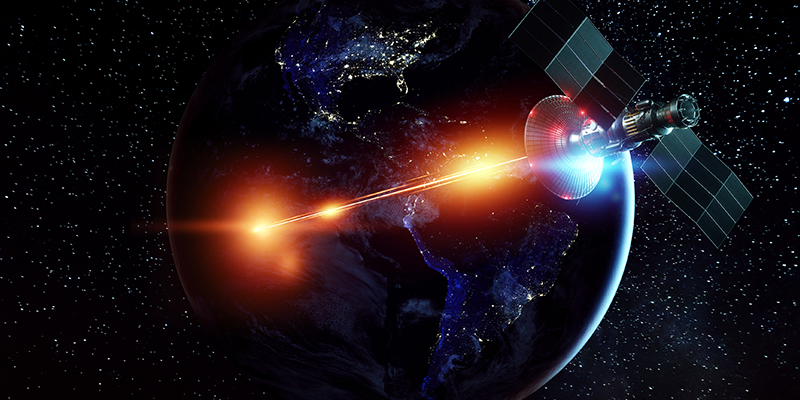Critical Militarization of Space and Conflict Prevention
Keeping Outer Space secure for our current and future generations
Outer space is a global commons, and humanity is becoming increasingly and irreversibly over-dependent on outer space for our daily lives in peace and war.
Such dependence includes navigation, financial transactions, weather, civil aviation, rescue at sea, telemedicine, arms-control verification, climate-change monitoring, diplomacy, education, science, and deep space exploration, among other things.
Since the adoption of the Outer Space treaty in 1967, little progress has been made to prevent the critical militarization of outer space. The treaty laid down important principles for the peaceful use of outer space but failed to exclude military activities from space altogether.
In addition, the UN General Assembly Resolution 36/97 reaffirmed the need to preserve space from an arms race, and an ad hoc committee was established under the Conference of Disarmament in 1981.
However, as spacefaring powers are increasing their capabilities in this important domain, including counter-space measures and the exponential increase in public and private actors, space is becoming increasingly: conflicted, competitive and congested.
If outer space becomes critically unsafe, it will not be selectively unsafe but unsafe for everyone. The recent UN Open-Ended Working Group on Reducing Space Threats, OEWG (75/36), is a critical step in the right direction. However, much work remains to ensure the peaceful use of outer space and reduce the risks of intentional and unintentional threats and their potential cascading effect.
Given the intimate interplay between space security and terrestrial security, what can states and international organizations do for outer space conflict prevention?
How can we overcome the prevalent lack of cooperation, mistrust, lack of binding treaties, lack of space traffic management systems, and other norms of conduct, especially with the exponential rise in the number of space forces around the world.
Join our online event to learn from world-class experts about how to minimize/eliminate future conflicts in outer space as a result of critical militarization, and keep it secure for our current and future generations.
Programme
15:00 Ms Alexandra Matas, Senior Advisor, Deputy Head, Diplomatic Dialogue, GCSP
- Welcome address
15:05 Ambassador Thomas Greminger, Director of the GCSP
- Opening and introductory remarks
15:10 Professor Nayef Al-Rodhan, Head of Outer Space Security Cluster, Head of the Geopolitics and Global Futures Programme, GCSP
- Overview: Militarization of Space
15:20 Ms Kaitlyn Johnson, Deputy Director and Fellow, Aerospace Security Project, Center for Strategic and International Studies, USA
- US views on the militarization of outer space and conflict prevention
15:40 Amb. Mikhail Lysenko, Moscow State Institute of International Relations (MGIMO-University), Associate Professor, Department of International Law, Russia
And Dr Andrey Malov, Asssociate Professor, Diplomatic Academy of the Ministry of Foreign Relations of Russia
- Russia views on the militarization of outer space and conflict prevention
16:00 Professor SHEN Dingli, Center for American Studies, Institute of International Studies, Fudan University, China
- China views on the militarization of outer space and conflict prevention
16:20 Dr Xavier Pasco, Foundation for Strategic Research, FRS, France
- European views on the militarization of outer space and conflict prevention
16:40 Amb. Hellmut Lagos Koller, UN Open Ended Working Group on Reducing Space Threats
- Video: Presentation of the UN Open Ended Working Group on Reducing Space Threats
17:00 Dr Michael K. Simpson, , Director Emeritus of Secure World Foundation, Professor of Space Policy and Law at International Space University, Senior Fellow of IISC, USA
- Foresight and the Prospect of a Peaceful Outer Space Order
17:20 Professor Nayef Al-Rodhan, Head of the Geopolitics and Global Future Programme, GCSP
- Debate and Q&A Moderation
18:05 Ms Alexandra Matas, Senior Advisor, Deputy Head, Diplomatic Dialogue, GCSP
- Closing remarks
18:10 End of the event
This public event will be held under the Chatham House Rule.
It is brought to you by the GCSP’s Geopolitics and Global Futures Programme and is open to everyone.


